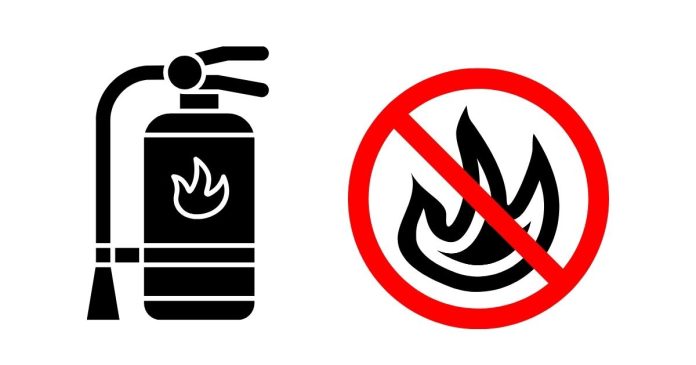Fire prevention guidelines are a set of best practices and safety measures aimed at reducing the risk of fires and minimizing the potential for damage, injury, or loss of life. These guidelines apply to homes, workplaces, public spaces, and areas prone to wildfires. By following these preventive measures, individuals and organizations can significantly lower the likelihood of fire hazards.
Here are the key fire prevention guidelines:
1. Install Smoke Alarms
- Importance: Smoke alarms detect fire early, giving you more time to evacuate.
- Guideline: Install smoke alarms in key areas such as bedrooms, hallways, and kitchens. Test alarms monthly, and change the batteries at least once a year.
2. Properly Store Flammable Materials
- Importance: Improper storage of flammable materials can lead to accidental fires.
- Guideline: Store flammable liquids (gasoline, paint, cleaning products) in labeled, safe containers, and keep them away from heat sources. Also, keep combustibles like paper or cloth away from heaters, stoves, and open flames.
3. Use Electrical Equipment Safely
- Importance: Faulty electrical equipment and overloaded circuits are common fire hazards.
- Guideline: Avoid overloading outlets or power strips. Ensure wires are not frayed or damaged. Always turn off electrical appliances when not in use, and regularly check cords and wiring for wear.
4. Maintain Heating Systems
- Importance: Poorly maintained heating systems can cause fires.
- Guideline: Have space heaters, furnaces, and chimneys inspected and cleaned regularly by professionals. Keep flammable materials away from heating sources.
5. Safe Cooking Practices
- Importance: Kitchens are one of the most common places where fires start.
- Guideline: Never leave cooking food unattended. Keep flammable items such as towels, napkins, or paper towels away from the stove. Keep a fire extinguisher or lid handy to smother small grease fires.
6. Create an Emergency Plan
- Importance: A well-prepared escape plan can save lives in the event of a fire.
- Guideline: Have a fire evacuation plan for your home or workplace. Ensure everyone knows escape routes and designated meeting places. Practice fire drills regularly.
7. Proper Disposal of Cigarettes
- Importance: Careless cigarette disposal is a leading cause of fire.
- Guideline: Ensure cigarettes and matches are fully extinguished before discarding them. Use appropriate disposal containers, and never toss them on the ground, especially in dry or grassy areas.
8. Clean Dryer Vents
- Importance: Lint buildup in dryers can cause fires.
- Guideline: Clean the lint trap after every use, and inspect and clean the dryer vent annually to ensure airflow is not obstructed.
9. Keep Fire Extinguishers Accessible
- Importance: Having a fire extinguisher nearby can help you contain small fires before they spread.
- Guideline: Place fire extinguishers in key areas such as the kitchen, garage, and near heating sources. Make sure everyone knows how to use them.
10. Install Fire Breaks in Wildland Areas
- Importance: Wildfires can quickly spread to buildings.
- Guideline: In areas prone to wildfires, create defensible spaces by removing dry grass, leaves, and brush. Implement fire-resistant landscaping and install fire breaks to limit the spread of fire.
11. Educate People About Fire Safety
- Importance: Awareness and education can prevent fire accidents.
- Guideline: Educate family members, coworkers, and children about fire risks and safety procedures. Teach them to avoid playing with matches, lighters, or fireworks.
12. Inspect and Maintain Fireplaces and Wood Stoves
- Importance: These can be a fire hazard if not maintained properly.
- Guideline: Have chimneys, fireplaces, and wood stoves cleaned regularly. Use a spark guard when using open fires, and never leave the fire unattended.
13. Keep Emergency Numbers Handy
- Importance: In case of a fire, immediate access to emergency services can save lives.
- Guideline: Ensure emergency contact numbers are visible, and everyone in your home or workplace knows how to contact local emergency services quickly.
Conclusion:
Fire prevention guidelines are vital in reducing the risk of fire and ensuring safety. Implementing these safety practices—such as using smoke alarms, maintaining electrical equipment, and having an emergency plan—can help prevent accidents and save lives. Fire safety is everyone’s responsibility, and being proactive in fire prevention can significantly reduce the risk of fire-related tragedies.



